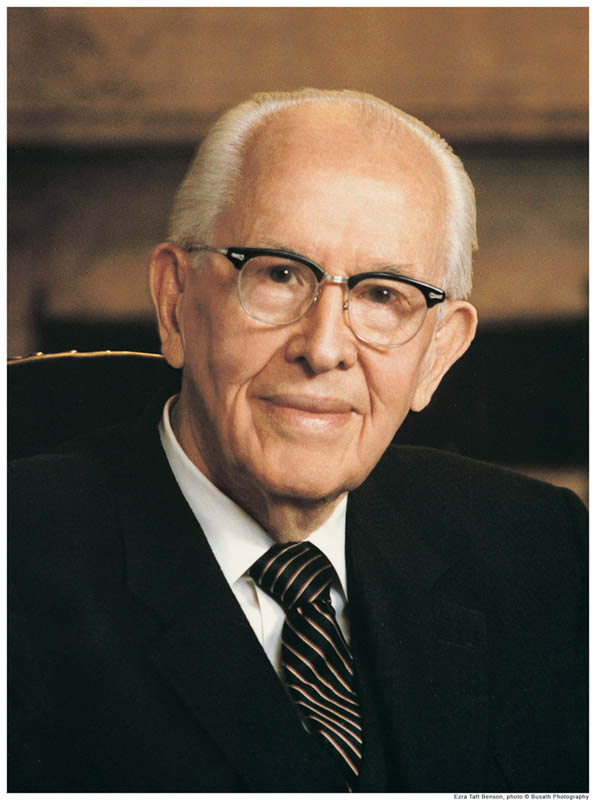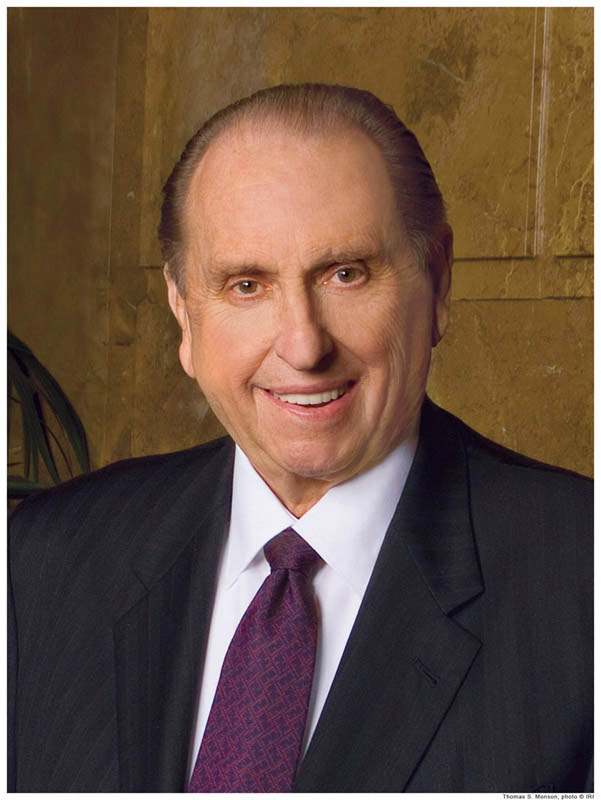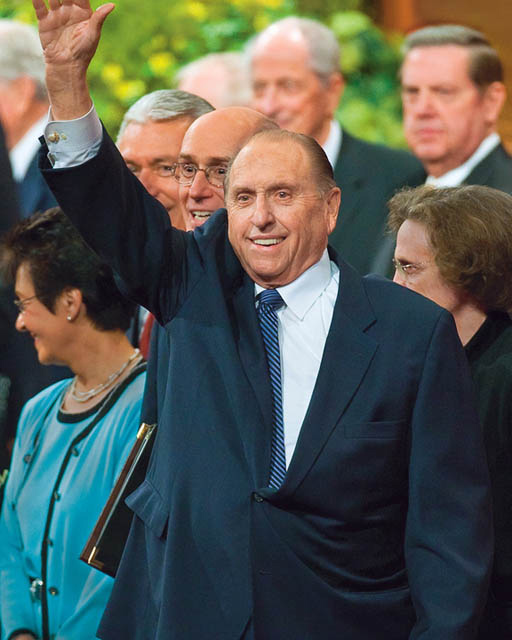In June of 1981, Ezra Taft Benson, who was then a Mormon apostle, gave an often-quoted talk called Fourteen Fundamentals in Following the Prophet. It outlined what Mormons and non-Mormons need to understand about Mormonism and what it means to follow a prophet. In this series, we will evaluate each of the fourteen points in more detail. In this first article, I will first introduce the concept of modern-day prophecy and what Mormons mean when they say they follow a prophet.
As a child, I visited many churches because my parents had decided I should choose my own religion. I quickly became confused because every church claimed to be teaching God’s word and yet each denomination contradicted the others, even on important topics. I soon felt there ought to be a better way to know what is true than to listen to a lot of people taking guesses. One summer I attended vacation Bible school in my neighborhood. The theme was Judaism and the Old Testament. (This was a Protestant Church.) When I learned about the Old Testament prophets, I became very excited. This was it—the solution to the whole problem. One person, a modern-day Moses, could go ask God what was true and then come back and tell us, just as Moses delivered the Ten Commandments to his people. I excitedly asked who the prophet today was and was told that after Jesus came, there was no more need for prophets.
My experience with visiting various Protestant churches showed me she was wrong. We mostly certainly did need a prophet, because nobody seemed to be sure what was true and what was not. I asked why God sent prophets before and was told it was to prepare people for the birth of Jesus Christ. I asked why, if he was returning, we did not need them to prepare for this visit as well, since so many people seemed to be having trouble understanding what was true. She had no answer for me.
Mormon beliefs teach that God does indeed love us enough to send prophets to the earth to help us prepare for the Second Coming. Just as we needed a series of living prophets in Biblical times, we need them today. If we only needed to get the commandments onto paper so to speak, one Biblical prophet would have been enough. Adam or Noah or Moses could have gotten the entire Old Testament in its finished form and sent it on its way. However, that is not how God chose to do it. He provided a series of prophets, each delivering doctrine for eternity and also for his own time. Only Noah was told to build an ark. Only Moses was told to lead his people through the wilderness. Each prophet gave specific advice for the time in which he lived, personalized to the needs of that day. Each of those prophets lived in different conditions and the people needed different instructions.
Is today any different? We live in a very different world than the people of Noah’s time, or even Jesus’ time. Today there are situations not even invented in Biblical days and the general confusion of the various churches, even within related religions, demonstrates that modern church leaders aren’t really sure what God wants them to teach. Some Protestant churches ordain openly gay ministers, for example, and some teach it is a sin to practice homosexuality. Surely there can only be one correct spiritual answer to this eternally significant question.
While God has periodically removed prophets from the earth because the people lacked respect for them and would not listen, he has consistently returned them in time. Today, in these critical last days, there are again prophets.
Mormon beliefs teach that Joseph Smith was the first prophet of the restored church. Each prophet who was called after a period of apostasy had to work to clear up inaccurate teachings that arose during the apostasy. We see in the New Testament that Jesus spent quite a lot of time on this project. Joseph Smith had to do the same thing. However, we learn “line upon line” and so God didn’t restore everything instantaneously. As in the past, things were revealed a little at a time. The Ten Commandments came to Moses, not the previous prophets. Jesus added more to what had been taught by previous prophets.
Today, modern prophets continue to build on our store of heavenly knowledge. Each prophet adds a little more to the body of restored knowledge. While truth does not change, we are gradually given more light and understanding and more truth is restored as we progress toward the final days.
Mormons commonly say the “follow the prophet.” What does this mean? It means we turn to the prophet for guidance on what God wants us to do and then we obey those teachings. It is not blind obedience, because before we are baptized, we are instructed to pray and ask God directly if the Church is true and the prophet really is a prophet. While some try to prevent this by saying we can’t trust the answers we get from prayer, Mormons know their God can do anything, including making sure we can understand His answers to us. The Bible promises us that if we ask God something, He will give us the wisdom we seek, and Mormon beliefs teach that God keeps His promises. (See James 1:5.)
Having received a witness from God that the current prophet is indeed God’s prophet, we then naturally give him the respect a prophet deserves. It is, without question, harder for people to believe in a living prophet. There seems to be something magical about Noah, standing in the city and preaching to the people to repent so they won’t be drowned. But Noah was the prophet of his day and people found it as hard to accept him and to believe him as people do today’s prophet. He was alive, familiar, and speaking to them, not some long dead group of people. Noah was the modern prophet in his day and his day was much like our own in terms of how a prophet was viewed—the people preferred to think he was a fallen or false prophet when he told them their preferred lifestyle was sinful.
People are happiest when the prophet just parrots what they want to hear or when God orders His world according to the pattern they’ve set. Fortunately, that isn’t what prophets or God are supposed to do. Prophets don’t, as we will learn, tell us what we want to hear. That renders them meaningless. Instead, they tell us what God wants us to know, which is not always politically correct or popular. God doesn’t design truth to meet the random needs or desires of life—truth is not open to debate, political correctness, or popularity. It is simply truth and the fact that we don’t believe it can’t make it no longer true. Although we may not remember, we once promised to accept and honor truth, and not remembering doesn’t negate the promise.
In the articles to follow, we will examine Ezra Taft Benson’s discussion of prophecy and learn how it applied to both the Old Testament prophets and the modern day prophets—and of course, to us.
About Terrie Lynn Bittner
The late Terrie Lynn Bittner—beloved wife, mother, grandmother, and friend—was the author of two homeschooling books and numerous articles, including several that appeared in Latter-day Saint magazines. She became a member of the Church at the age of 17 and began sharing her faith online in 1992.







